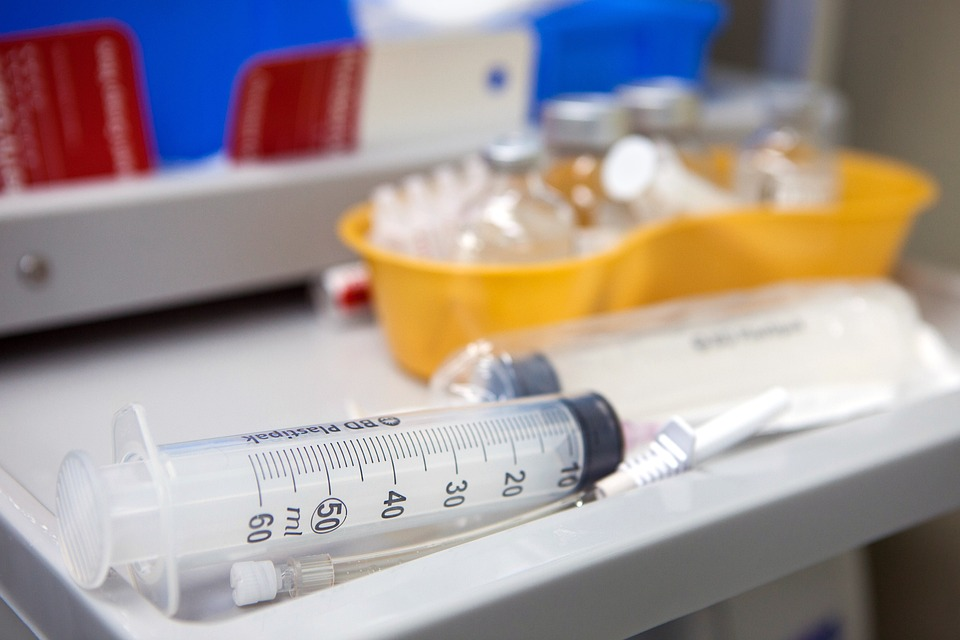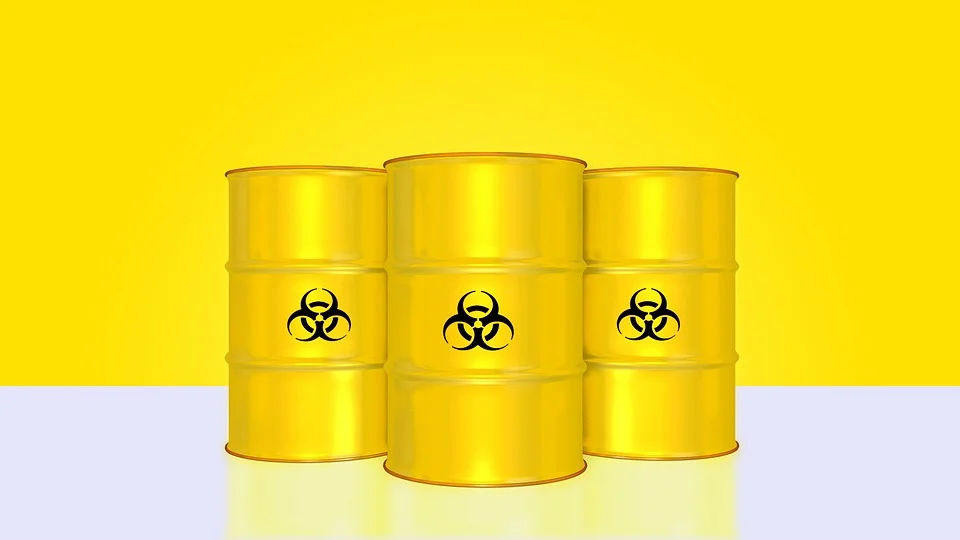 As a healthcare professional, you have to manage medical waste on a daily basis. Taking the right safety precautions can be daunting as well as time-consuming. That’s why it is essential that you understand and know the best practices for medical waste management. This blog post will explore each step and provide some tips to help make sure that your facility remains compliant with all applicable laws and regulations regarding hazardous materials disposal.
As a healthcare professional, you have to manage medical waste on a daily basis. Taking the right safety precautions can be daunting as well as time-consuming. That’s why it is essential that you understand and know the best practices for medical waste management. This blog post will explore each step and provide some tips to help make sure that your facility remains compliant with all applicable laws and regulations regarding hazardous materials disposal.
Arrange Proper Transport
With the right practices in place, any healthcare facility can ensure that these materials are safely taken away and treated to standards set by the local authorities. Good transport is essential according to sanprowaste.com because the waste has to be treated along the way to its final destination. Healthcare professionals should be conscientious when selecting vendors to handle the transport and disposal of medical waste, making sure they have the appropriate certifications in order to meet government regulations and industry best practices.
Additionally, healthcare providers must enforce segregation protocols and institute a system whereby all those who generate medical waste are aware of their responsibility with regard to the safe transport of said material at the end of their shifts. A diligent approach will go a long way toward improving safety conditions in any healthcare environment.
Segregate The Waste
Medical waste can be divided into categories like hazardous, infectious, and general waste and each should be placed into its corresponding bin or receptacle. This will provide improved management of the disposal process – staff will be better aware of how different types of waste need to be handled and disposed of appropriately, which decreases risks of improper or accidental management.
It also saves money from contaminating loads or needing to separate materials that could have been placed into different bins initially. Medical professionals must remain knowledgeable about the proper segregation and disposal protocols for medical waste in order to remain compliant with laws, regulations, and safety standards.
Label By Type
Healthcare professionals should make it a priority to correctly and clearly label hazardous materials separating them properly. Here are some categories you should make:
- infectious waste
- sharps waste
- hazardous waste
- pharmaceutical waste
- radioactive waste
- general waste
- non-hazardous waste
This is an essential step towards improving safety while reducing disposal costs. Labeling by type provides vital data both for understanding the amount of waste created by an organization as well as tracking its safe disposal. This will ensure that the environment is kept safe from contamination and that hazardous materials are handled in accordance with all applicable standards.
Use Appropriate Containers
Implementing the use of appropriate containers is a key practice for medical waste management. Healthcare professionals should choose specialized containers that are made specifically for medical waste. These will ensure the medical waste is kept separate and easy to transport, making it easier to manage properly.
It is also important that these dedicated containers be regularly inspected and replaced as needed in order to continue the proper containment of any hazardous materials within the medical waste. Using them is an essential behavior throughout every level of healthcare and failure to properly utilize these can pose health risks down the line.
Store It In A Designated Area
Proper storage of medical waste is an important practice for healthcare professionals to ensure that potential dangers from contamination and the spread of disease are avoided. Finding a designated area to put it in will help contain any hazards, by limiting the range of contaminants and keeping people that could be potentially exposed as far away as possible.
Safe practices such as labeling containers clearly, using colored bags for different types of waste, and regularly cleaning the storage area also need to be implemented. Medical waste storage is a vital part of proper management, and with these measures in place, facilities can guarantee that their environment remains sanitary and safe.
Regularly Disinfect Waste Containers
It’s important to regularly disinfect to reduce the risk of contamination. Cleansers that contain bleach and detergents can be applied with a sponge or cloth to the inside and outside of each container, ensuring proper sanitation.
By implementing this practice, healthcare professionals can drastically decrease their environmental impact and maintain patient safety by managing hazardous medical waste. Not only will they be able to handle the problem of medical waste but they can also help cut down on bad bacteria that may linger in the units after use.
Train Your Staff
Healthcare systems can improve their medical waste management practices by investing in the proper staff training – especially those who work most closely with it. Through this educational course, nurses, healthcare technicians, and anyone else handling medical waste can receive the guidance necessary to properly dispose of and manage it appropriately.
his training should cover topics such as familiarizing staff with any regulations and statutes related to medical waste disposal, helping them understand the various methods for disposing of different types of materials (for example, whether certain items should be recycled or incinerated), and ensuring that personnel follows established protocols for safely treating and transporting soiled linens or other biohazardous materials. The key point is that well-informed staff are essential for successful medical waste management within a hospital or other healthcare facility.
Set Rules
Setting rules is an effective practice for managing medical waste, as it allows healthcare facilities to have clear guidelines that their staff can follow. They should be discussed in detail with all staff, and include detailing the types of waste materials, where and how these materials should be stored, and appropriate disposal protocols.
Developing proper rules and implementing these practices is essential for the efficient management of medical waste. It is also important to choose an experienced medical waste disposal contractor who can provide valuable advice on setting up an effective workflow process for medical waste management.
 The need to properly manage medical waste has never been greater. It is the responsibility of healthcare professionals to employ practices that will maximize safety and efficiency in their facility. Thankfully, there are numerous measures they can take such as arranging proper transport, segregating the waste, labeling by type, and using appropriate containers. Additionally, staff should be trained in proper procedures and informed of safety protocols. Storing waste in a designated area and regularly disinfecting containers are both crucial steps toward creating a safe environment for everyone. By following these tips and setting rules for your team, medical waste management can be handled with minimal fuss. Ultimately, it is up to all healthcare professionals to remain vigilant and prioritize the well-being of patients, guests, and staff alike.
The need to properly manage medical waste has never been greater. It is the responsibility of healthcare professionals to employ practices that will maximize safety and efficiency in their facility. Thankfully, there are numerous measures they can take such as arranging proper transport, segregating the waste, labeling by type, and using appropriate containers. Additionally, staff should be trained in proper procedures and informed of safety protocols. Storing waste in a designated area and regularly disinfecting containers are both crucial steps toward creating a safe environment for everyone. By following these tips and setting rules for your team, medical waste management can be handled with minimal fuss. Ultimately, it is up to all healthcare professionals to remain vigilant and prioritize the well-being of patients, guests, and staff alike.

